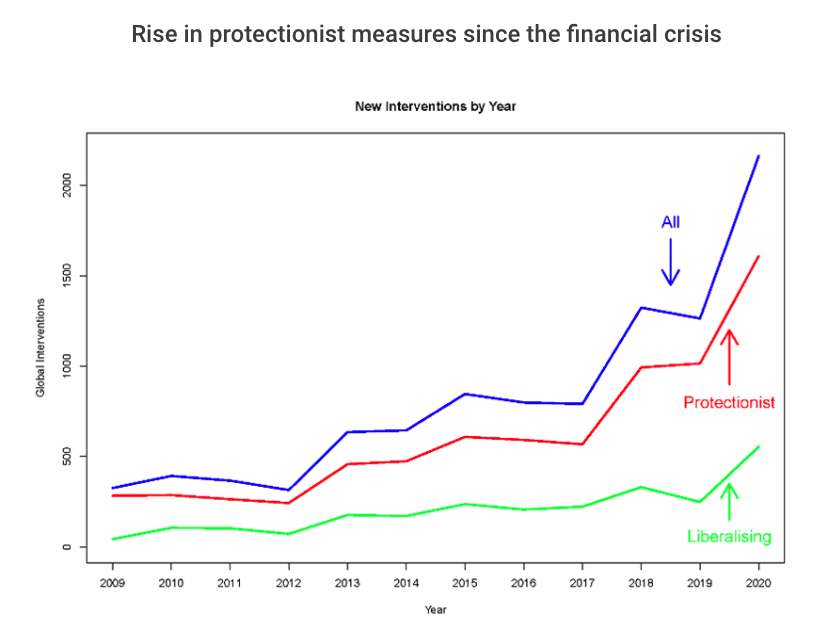Recently, advanced economies have witnessed a significant shift towards protectionist economic policies. While this is often framed in terms of geopolitical competition, especially involving China, this trend should also be understood as a response to the growing influence of populism and the surge in support for alternative political parties. To grasp this phenomenon, it is essential to examine the underlying causes and the interplay between populist sentiments and economic policy changes.
Populism and Economic Discontent
Populism has gained traction as a reaction to widespread economic discontent. Globalisation and technological advancements, while beneficial to many, have also led to job losses, wage stagnation, and reduced economic security for others. This disparity has fuelled populist movements, which position themselves as defenders of the “common people” against an elite perceived as disconnected from everyday realities.
One prominent example is the election of Donald Trump in the United States. Trump’s campaign capitalised on economic anxieties, particularly in regions hit hard by deindustrialisation. His promises to bring back manufacturing jobs and renegotiate trade deals resonated with voters who felt left behind by globalisation.

The Rise of Alternative Political Parties
Traditional political parties are increasingly viewed as failing to address the needs and concerns of ordinary citizens. This perception has paved the way for alternative political parties, often with populist platforms, to gain traction. These parties advocate for economic policies that prioritise national interests over global integration.
In Europe, the rise of parties like Italy’s Lega and France’s National Front exemplifies this trend. These parties have gained support by promising to protect domestic industries and jobs, challenging the status quo of free trade and open borders. Their success reflects a broader scepticism towards globalisation and a desire for economic policies that put national interests first.
Protectionist Economic Policies
Protectionist policies, such as tariffs, import quotas, and other trade barriers, are designed to shield domestic industries from foreign competition. These measures are seen as a way to address economic insecurities by preserving jobs and supporting local businesses.
The United Kingdom’s decision to leave the European Union, known as Brexit, is a case in point. Brexit was driven by a desire to regain control over trade policies and reduce dependency on EU regulations. Proponents argued that leaving the EU would allow the UK to protect its industries and negotiate trade deals more favourable to its interests.
Link Between Populism and Protectionism
The rise of populism has created political pressure for governments to adopt protectionist measures. Populist leaders and alternative parties often campaign on promises to implement protectionist policies, resonating with voters’ desire for economic security and national sovereignty. To counter this, more mainstream political figures have adopted protectionist politics.

The rise of protectionist economic policies in advanced economies can be considered a response to the growth of populism and the surge in support for alternative political parties. By addressing economic grievances and offering a sense of protection, these policies appeal to those feeling neglected by globalisation. However, the long-term implications necessitate careful consideration of their economic, political, and social impacts.
Policymakers must develop balanced economic strategies that protect domestic interests while fostering global competitiveness. Engaging with citizens to rebuild trust and addressing the root causes of economic discontent are crucial steps. By understanding the dynamics between populism and protectionism, we can formulate effective responses that promote stability and prosperity.
